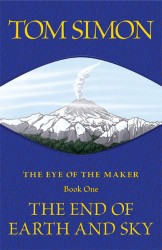There are, as everyone knows, two ways of doing a thing: one way and the other way. For any given thing worth doing, there may be an infinite number of ways to divide it into two categories; just as there are an infinite number of angles at which you can cut an apple in two. All these lines of division are technically valid, of course, but some are clearly more helpful than others. (Here is an example of an unhelpful division. There are two ways of tying your shoelaces: with a barbecue lighter and without. I think it is safe to say that all the usual methods of tying shoelaces fall into the second category.)
There are, accordingly, two ways of reading books; but infinitely many ways to divide up the act of reading into two classes. One way, which I and others have found useful, is to divide reading into the immersive and the analytic. If you prefer, you can call them ‘reading for the story’ and ‘reading for the text’. The immersive reader dives joyously into the vicarious experience of the story, identifies with the characters, laughs at the funny bits, cries at the moving bits, and generally wallows in the sensuous details of the story-world. The text is translated on the fly into a sort of 3-D movie playing inside the immersive reader’s head. Vladimir Nabokov despised the immersive reader. The analytic reader, who is most often found in academia, stays carefully on the surface of the text, studying the language word by word and sentence by sentence, looking for nuggets of technique and jewels of craftsmanship, and treating motifs and symbols as if they were algebraic variables. Nabokov courted and lionized the analytic reader; which is why Nabokov’s books are read (now that the naughty-naughty of Lolita has been eclipsed by a planet full of Internet porn) chiefly by bored university students labouring their way through the ‘close reading’ of a set text. [Read more…]








Recent Comments